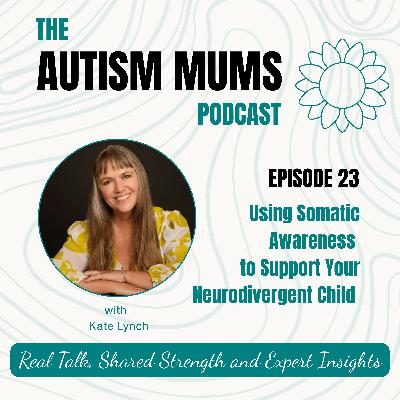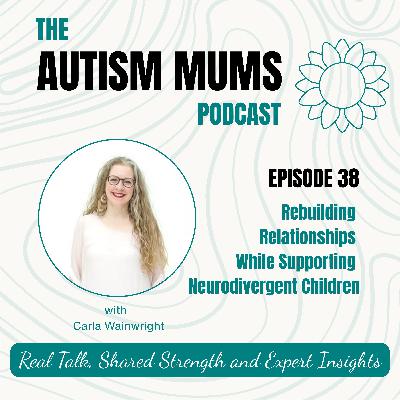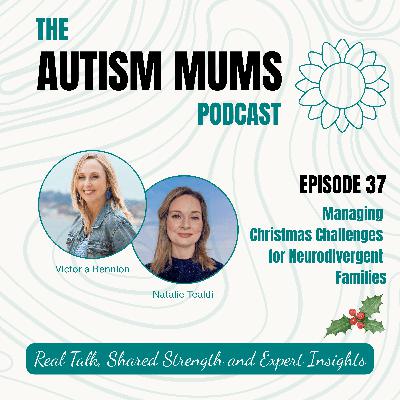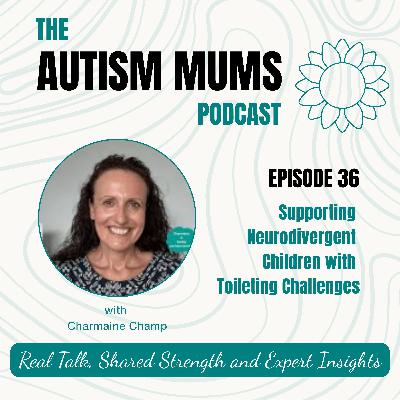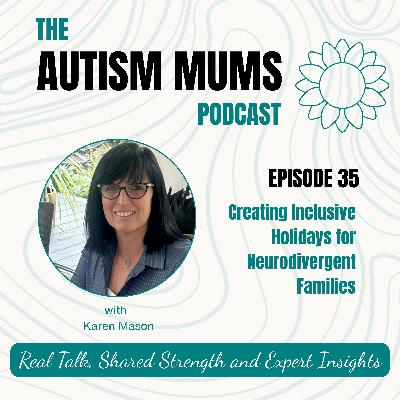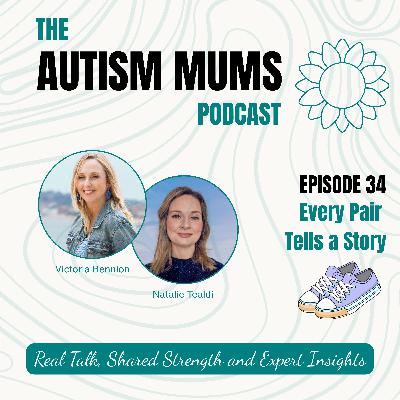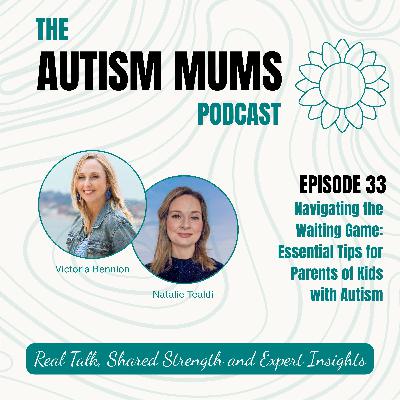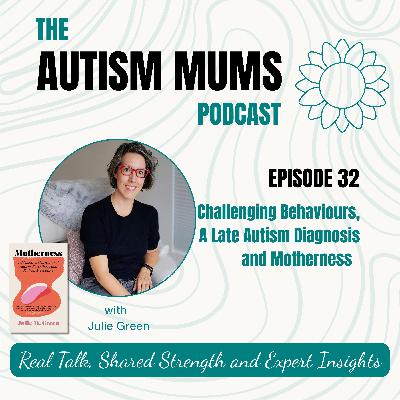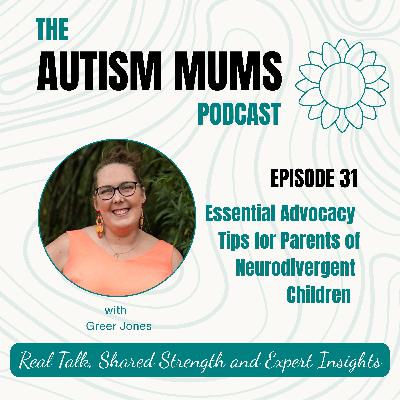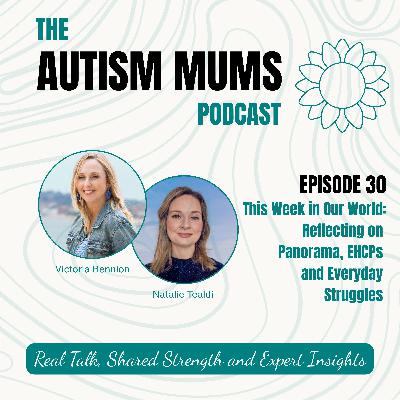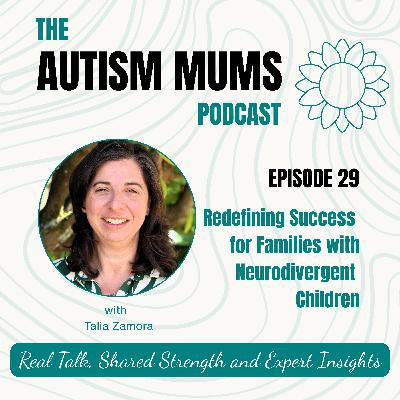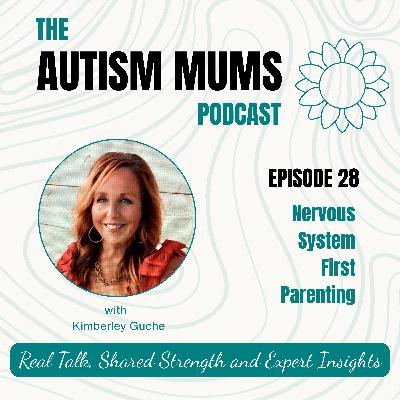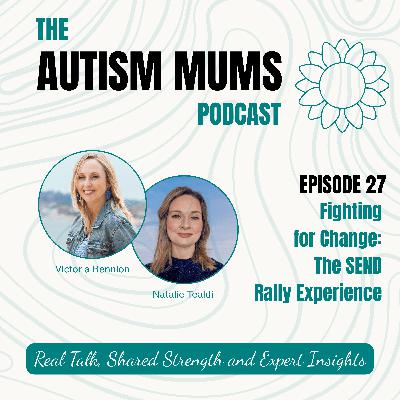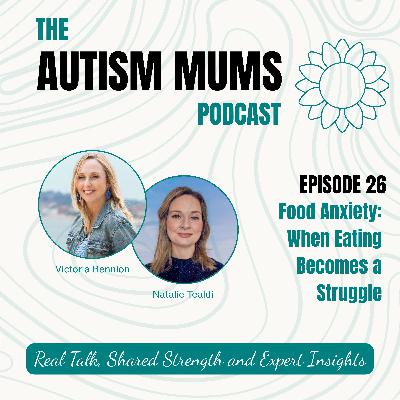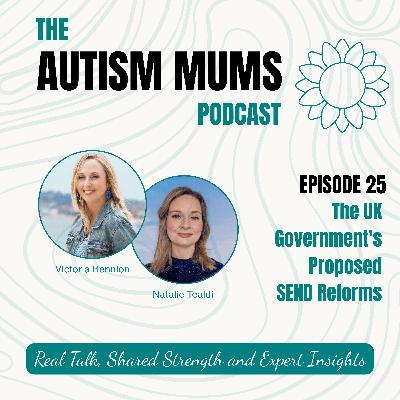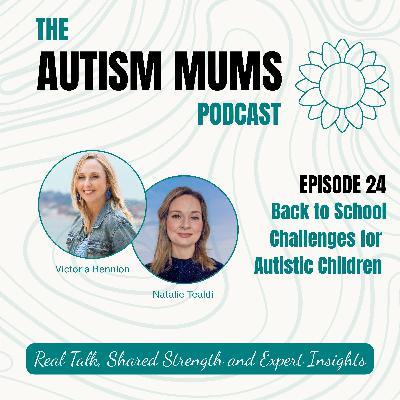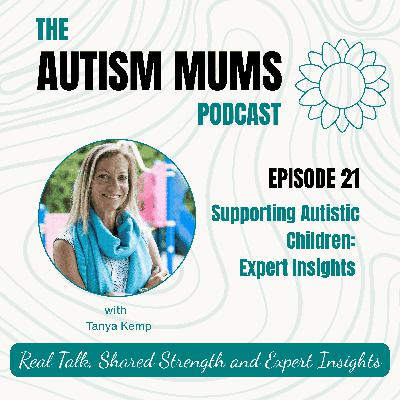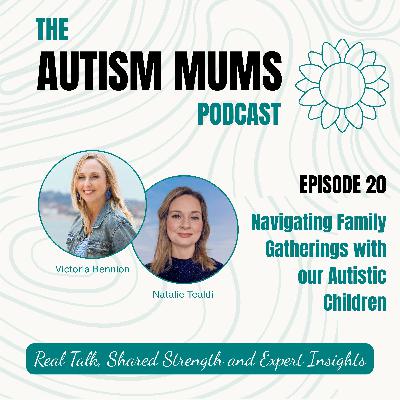Using Somatic Awareness to Support Your Neurodivergent Child with Kate Lynch
Description
We're so grateful this week to be joined by Kate Lynch. Kate is a somatic mindfulness coach dedicated to creating a kinder, more inclusive future for all families. Since 2002, she has supported thousands of parents around the world with mindfulness, self-compassion, and somatic movement, helping them avoid burnout while raising their neurodivergent children.
Kate shares some really valuable insights and practical advice that we hope will resonate with you.
Biography
Kate Lynch (she/her) is a somatic mindfulness coach on a mission to create a kinder, more inclusive future. Since 2002, she has supported thousands of parents internationally with mindfulness, self-compassion, and somatic movement, so they can enjoy raising their neurodivergent kids and avoid parental burnout. She facilitates Parent Support Groups for Extreme Kids and Parent Clubs for Good Inside. Kate is author of the upcoming book, Atypical Kids, Mindful Parents: The joys and struggles of raising neurodivergent kids. She has been featured in ADDitude Magazine, Mutha Magazine, Autism Parenting Magazine, and more. Her little neurodiverse family lives in Brooklyn, NY.
Key Takeaways
Understanding Somatic Mindfulness: Somatic mindfulness focuses on the mind-body connection, emphasising self-care and emotional regulation through body awareness.
The Impact of Parenting on Children: Parents' emotional states, such as anxiety or stress, can significantly affect their neurodivergent children, highlighting the importance of parental self-regulation.
Mindfulness Practices for Parents: Simple mindfulness techniques, such as feeling the soles of your feet on the ground, can be integrated into daily routines to support emotional well-being.
Community Support: Connecting with other parents is invaluable. Sharing experiences and advice can empower you and provide essential resources.
Advocacy and Navigating Educational Systems: Understanding your rights and advocating for your child’s needs in educational settings is crucial, as parents often face systemic challenges.
The Role of the Vagus Nerve: The vagus nerve plays a vital role in regulating stress responses and emotional states, influencing how we react to situations.
The Therapeutic Nature of Activities: Engaging in activities like surfing or working with animals can be therapeutic for neurodivergent children, providing joy and confidence.
Connect with Kate Lynch
Email: kate@healthyhappyyoga.com
Substack: https://katelynch.substack.com/
Instagram: https://www.instagram.com/selfregulatedparent
Kate's offer
Mindful Meltdown Cheat Sheet:
4 quick and simple mindfulness tools just for parents of neurodivergent kids
4 meltdown essentials based on core values.
https://www.healthyhappyyoga.com/meltdown
or 1 month trial membership: https://katelynch.substack.com/month
Connect with The Autism Mums
Follow us on Instagram https://www.instagram.com/theautismmums
Follow us on TikTok https://www.tiktok.com/@theautismmums
Follow us on Facebook https://www.facebook.com/theautismmums
Transcript
Natalie Tealdi:
Hi, it's Natalie. Unfortunately, I was unable to be in today's interview, but before we begin, I wanted to take a moment to introduce our brilliant guest.
Victoria Bennion:
That's right! Today, I'm thrilled to welcome Kate Lynch. Kate is a somatic mindfulness coach dedicated to creating a kinder, more inclusive future for all families. Since 2002, she has supported thousands of parents around the world with mindfulness, self-compassion, and somatic movement, helping them avoid burnout while raising their neurodivergent children.
Natalie Tealdi:
If you've ever felt overwhelmed or uncertain on your parenting journey, this episode could really help you. Kate has some really practical advice that could be easily implemented into your daily life.
So, let’s hand over to Victoria and Kate!
Victoria Bennion: [00:00:00 ] Hello and
welcome to the podcast, Kate. It's great to have you here today.
Kate Lynch: Thanks. It's so great to be here, Victoria.
Victoria Bennion: So you are a somatic mindfulness coach, I
believe. Did I say that right?
Kate Lynch: You said it perfectly. And the reason I use the big
word somatic, which a lot of people ask what that means, it just
means of the body. I've been a yoga teacher for over 20 years, and
these days, a lot of times people don't understand, they really take
that as like a kind of a gym exercise teacher.
And what I do is much more
about the mind body connection about self-care and specifically
serving parents who are really struggling with how to even begin to
focus on themselves. They may be neurodivergent themselves or just
really struggling with this unexpected change of having a child with
a neurodivergent brain.
What I was doing before when I
first [00:01:00 ] started teaching is
very, very different from what I'm doing now and it's more
therapeutic. So that's why I use that. That word somatic mindfulness
coach. 'cause it's not just about staying in your head, it is really
about bringing it into our body so our nervous system can help us
regulate our emotions.
Victoria Bennion: I have heard the term before, but I wasn't sure
of what it meant, so thank you very much for explaining that.
So how did your work evolve
into focusing on helping parents?
Kate Lynch: I was a yoga teacher for about 10 years, and then I
had my son, I have one. It was pretty late in life and we struggled
with fertility, so I felt very prepared. I had been teaching prenatal
yoga and parent baby yoga for a really long time, had my son and
things were really different than I expected.
He was. Someone who had a lot
of needs very early on. We [00:02:00 ]
didn't know about colic, but it kind of felt like that. And then he
had a lot of needs but not a need for sleep. And I had him at 41. I
had a very hard time that first year because I did not sleep more
than two hours at a stretch.
Victoria
Bennion: I can
relate to that.
Kate
Lynch: yeah, I know that her parents can't
and it, it nearly broke me. It
really felt that way. So I sat my husband down after one year and I
said, let's make absolutely sure that we don't have another child.
One. And done couldn't. I didn't know if I could survive it. So
raising ocean has been a little like raising two or three kids, I
think. And our family feels very complete now.
So bringing it back around to
my career. I really put it on autopilot. It took the first six months
to just be with him, and then I would take him to my classes and, my
career was on autopilot for a while when my [00:03:00 ]
son was younger, because luckily I had been doing the job for a long
time. I could just drop him off and teach a class and pick him up
and. It all worked out pretty well.
We would raise home for naps
and I was really trying to keep him on a routine because I found
that, routine really helped him.
And then parents started
asking me, parents of neurodivergent kids started to find me and ask
me advice. And I had been a trusted family educator for a while as a
prenatal and postpartum yoga teacher, and it just felt like the most
natural next thing to do to start teaching parents how to use
mindfulness and how I had gone from feeling nearly broken to
remembering some of my very basic mindfulness techniques.
I distilled them into small
drops that I could use while I was with my [00:04:00 ]
son, not separately, not having to check out for hours at a time to
go do yoga in another room, because that just wasn't possible. So my
meditation and my mindfulness and my. Body-based practices became
part of our rituals, our routines, our life, and that is what kept me
afloat those first couple of years, was just really relying on those
little tiny practices, like even feeling the soles of your feet on
the floor.
Very simple little things like
that. So that evolved. I'm also a writer and that evolved into
writing a book and beginning to work with parents in the community
and one-on-one.
Victoria
Bennion: Can you
tell me
a little bit about your book?
Kate
Lynch: 2019 there was a call from this autism publisher
if. Anyone had any ideas for books and I just wrote them a simple
p

